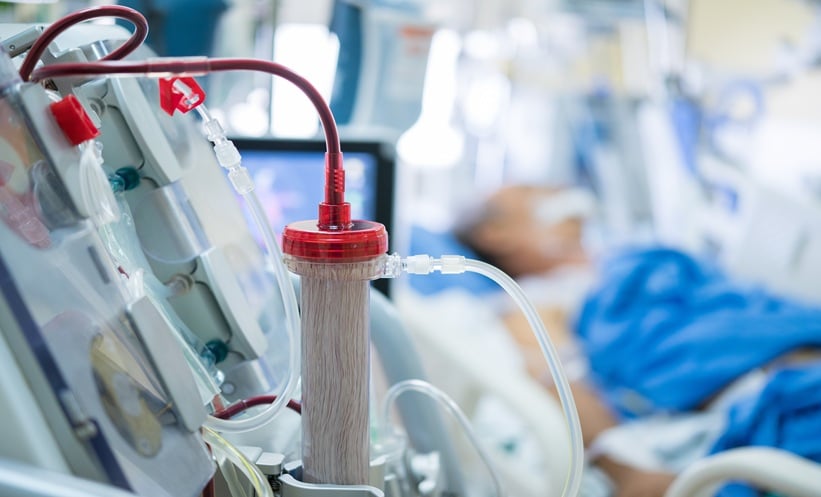IN kidney transplant recipients (KTRs), delays in appropriate empiric antibiotic therapy for urosepsis significantly increase the risk of death, acute kidney injury (AKI), and graft failure, according to a post-hoc analysis of an observational study conducted at a tertiary transplant center.
The study analyzed 201 patients: 101 KTRs admitted with a primary episode of urosepsis (US) and 100 with urinary tract infection (UTI) as a control group. Between 2014 and 2019, researchers collected detailed clinical and microbiological data and constructed a localized microbiological map to guide antibiotic decision-making.
The estimated annual incidence of urosepsis was 21.1 cases per 1,000 KTRs, accounting for 85% of all sepsis cases in this population. Escherichia coli was the most frequently identified pathogen in both US and UTI cases. However, nearly half of US patients (46%) required escalation of empiric antibiotics by day three due to clinical deterioration or confirmed resistance.
Crucially, this delay in initiating effective antibiotic therapy was strongly associated with adverse outcomes: a tenfold increase in mortality (OR = 10.1; p = 0.021), nearly five times the likelihood of requiring acute renal replacement therapy (OR = 4.73; p = 0.012), and over three times the risk of non-recovery from AKI (OR = 3.18; p = 0.031).
Post-discharge, around 60% of patients received prophylactic antibiotics to prevent recurrent UTIs. However, this strategy did not significantly reduce UTI-related readmissions, suggesting limited long-term benefit and potential overuse.
The authors emphasize that urosepsis is a critical but potentially modifiable threat to graft survival. They advocate for tailoring empiric antibiotic protocols to local resistance patterns, particularly in high-risk transplant settings. Doing so may reduce the need for broad-spectrum escalation, improve survival, and minimize nephrotoxic exposure.
Reference:
Kròlicki T et al. Antibiotic practices in kidney transplant recipients with urosepsis are associated with treatment outcomes – a post-hoc analysis of an observational study. Eur J Clin Microbiol Infect Dis. 2025. doi: 10.1007/s10096-025-05181-x. [Online ahead of print]








